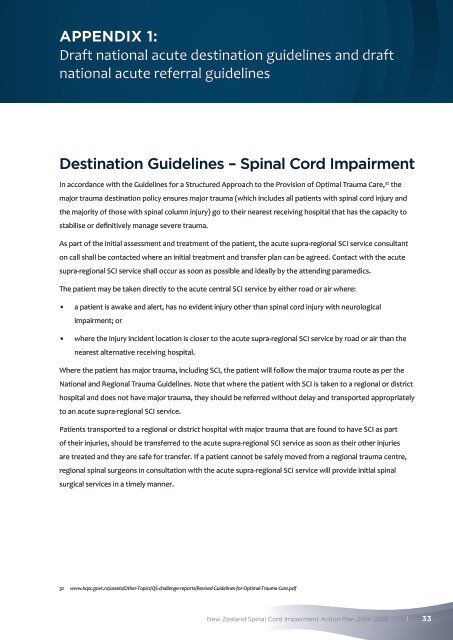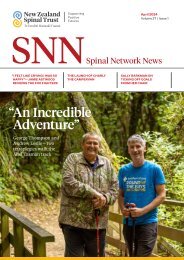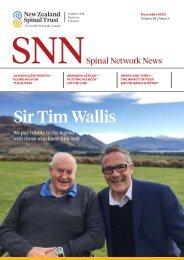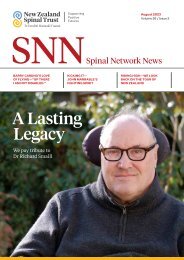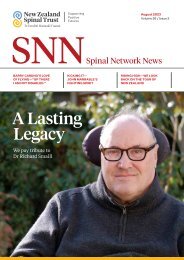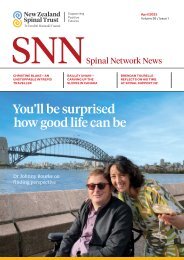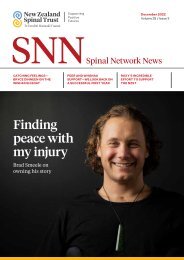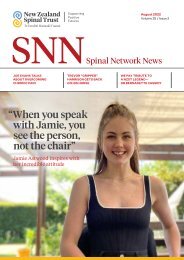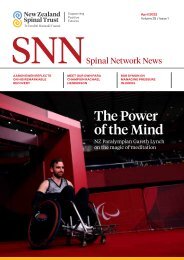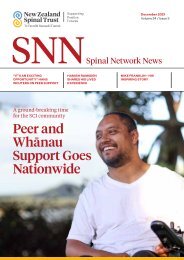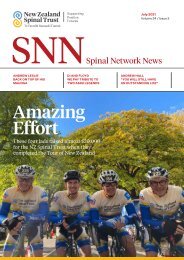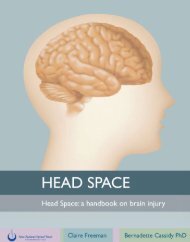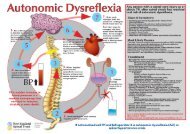SCI Action Plan 2014-2019
You also want an ePaper? Increase the reach of your titles
YUMPU automatically turns print PDFs into web optimized ePapers that Google loves.
APPENDIX 1:<br />
Draft national acute destination guidelines and draft<br />
national acute referral guidelines<br />
Destination Guidelines – Spinal Cord Impairment<br />
In accordance with the Guidelines for a Structured Approach to the Provision of Optimal Trauma Care, 32 the<br />
major trauma destination policy ensures major trauma (which includes all patients with spinal cord injury and<br />
the majority of those with spinal column injury) go to their nearest receiving hospital that has the capacity to<br />
stabilise or definitively manage severe trauma.<br />
As part of the initial assessment and treatment of the patient, the acute supra-regional <strong>SCI</strong> service consultant<br />
on call shall be contacted where an initial treatment and transfer plan can be agreed. Contact with the acute<br />
supra-regional <strong>SCI</strong> service shall occur as soon as possible and ideally by the attending paramedics.<br />
The patient may be taken directly to the acute central <strong>SCI</strong> service by either road or air where:<br />
• a patient is awake and alert, has no evident injury other than spinal cord injury with neurological<br />
impairment; or<br />
• where the injury incident location is closer to the acute supra-regional <strong>SCI</strong> service by road or air than the<br />
nearest alternative receiving hospital.<br />
Where the patient has major trauma, including <strong>SCI</strong>, the patient will follow the major trauma route as per the<br />
National and Regional Trauma Guidelines. Note that where the patient with <strong>SCI</strong> is taken to a regional or district<br />
hospital and does not have major trauma, they should be referred without delay and transported appropriately<br />
to an acute supra-regional <strong>SCI</strong> service.<br />
Patients transported to a regional or district hospital with major trauma that are found to have <strong>SCI</strong> as part<br />
of their injuries, should be transferred to the acute supra-regional <strong>SCI</strong> service as soon as their other injuries<br />
are treated and they are safe for transfer. If a patient cannot be safely moved from a regional trauma centre,<br />
regional spinal surgeons in consultation with the acute supra-regional <strong>SCI</strong> service will provide initial spinal<br />
surgical services in a timely manner.<br />
32 www.hqsc.govt.nz/assets/Other-Topics/QS-challenge-reports/Revised-Guidelines-for-Optimal-Trauma-Care.pdf<br />
New Zealand Spinal Cord Impairment <strong>Action</strong> <strong>Plan</strong> <strong>2014</strong>–<strong>2019</strong><br />
I<br />
33


